
When Your Freedom And Future Are On The Line Few things are as terrifying as being accused of a serious crime like armed robbery. One moment, you’re living your life just working, supporting your family, and planning for the future. The next, you’re staring down charges that could strip away everything you’ve built: your reputation, your career, even your freedom. If you’re in this situation, you’re likely feeling overwhelmed, isolated, and unsure of where to turn. The legal system can feel like a maze designed to trap you, with prosecutors and law enforcement already building a case against you. But here’s the truth: You don’t have to face this alone. The decisions you make now, especially who you choose to defend you, could mean the difference between a future defined by this…Read More

Being stopped, questioned, and tested for a DUI is stressful enough, but what you do afterward can make a significant difference in how your case unfolds. In California, these common mistakes can worsen the consequences of a DUI arrest. Keep reading this article to learn: Why staying silent (including on social media) is crucial during and after a DUI arrest. Why accepting a quick plea deal isn’t in your best interest—and why hiring an attorney is. How early legal representation and proactive treatment can benefit your case. How Can Talking Too Much To The Police Impact My LA County DUI Case? Talking too much after a DUI arrest can harm your case in several ways: Self-Incrimination: In the stress of the moment, it’s easy to say things that may unintentionally incriminate you.…Read More
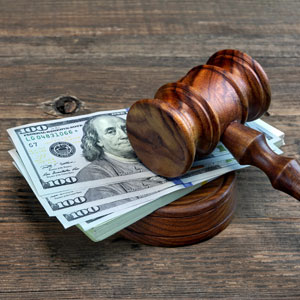
The California legal system can feel unforgiving, especially when missing a court date—even for a minor charge—can lead to significant penalties. This article covers everything you need to know about Failure to Appear (FTA) charges in California, including: What "Failure to Appear" means under California law. The serious fines, penalties, and arrest warrants that may result from missing a court date. How unscrupulous legal advice can make things worse for minor charges. What Is The Legal Definition of "Failure To Appear" In California? In California, a "Failure to Appear" occurs when someone misses a required court appearance. Failing to show up can lead to an FTA charge, an arrest warrant, and additional fines. Depending on the original charge, FTAs can escalate from minor to major legal issues. Will I Face Additional Fines…Read More
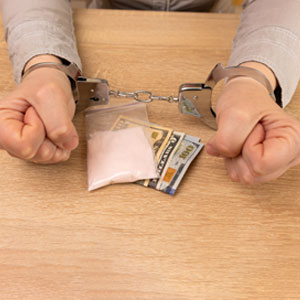
Drug charges remain some of the most frequent criminal cases in California, despite recent legislative changes. This article addresses widespread myths and misconceptions around drug charges, providing clarity if you or a loved one faces drug possession or trafficking allegations. Why every California drug charge deserves serious attention. Legal protections you might think apply but don’t. Why you can face drug charges even without drugs found directly on you. Myth #1: Minor Drug Possession Charges Aren’t Taken Seriously In California False: Even seemingly minor charges today can have long-lasting consequences. California courts take drug possession seriously, and proposed legislation could increase penalties even for minor drug offenses. Proposition 36 seeks to modify the current treatment-focused approach (established under Proposition 47) by creating a "treatment-mandated felony" for possession of certain hard drugs by…Read More

Dealing with an arrest warrant is serious, especially in a large city like Los Angeles, where even a minor legal issue can escalate unexpectedly. This article provides clear guidance on handling an arrest warrant, covering critical points such as: How to check for outstanding warrants. Steps to take if you discover one (hint: staying calm and informed is essential). Strategies for resolving a warrant with an attorney's assistance to avoid arrest. How Can I Find Out If I Have An Active Arrest Warrant In Los Angeles? It may seem straightforward, but checking for an active arrest warrant is often more complicated than people assume. There are different types of warrants, each with unique implications. If the warrant resulted from a missed court date in a criminal case, many courts offer online portals…Read More
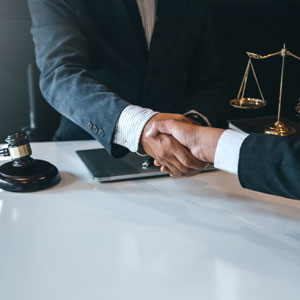
What to Look for in a Criminal Defense Attorney Choosing the right criminal defense attorney can make all the difference in the outcome of your case. Remember, this person will advocate on your behalf, representing your story and seeking the best possible outcome for you. Choose someone you trust to be your voice in the courtroom. Here are the key qualifications you should consider: Experience First and foremost, look for an attorney with a robust background in criminal defense, particularly in handling cases similar to yours. Experience in navigating the complexities associated with this type of case, as well as the larger criminal justice system, is invaluable. Specialization Ensure the attorney specializes in criminal law and has a solid track record in dealing with the specific type of crime involved in your…Read More
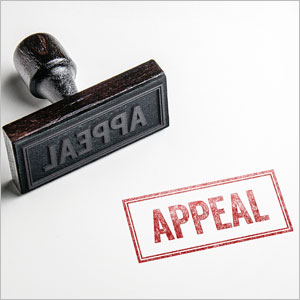
Breaking Down The Federal Appeals Process If you’ve been convicted in a federal criminal trial, you have the right to appeal the decision. If you do, you’ll need to pay careful attention to detail, as well as have a decent understanding of the process. Why? Because the federal appeals process is incredibly complex and must be followed precisely. I’ll overview it for you here. Notice Of Appeal The first step is filing a notice of appeal with the district court that handled your case. Generally, this must be done within 14 days after the judgment or order you’re appealing, as specified in Rule 4(b) of the Federal Rules of Appellate Procedure. Grounds For Appeal You need valid grounds to appeal. These can include such things as legal errors, such as the improper…Read More

Pasadena, California, criminal defense attorney explains why the rapper P Diddy was denied release on bail after his arrest last week and what it could mean for you if you are arrested. After nearly a year of lawsuits, police raids, and investigations, grammy award-winning Rap mogul Sean “Diddy” Combs has been arrested in New York on federal charges. Indicted by a grand jury for Racketeering, criminal conspiracy, sex trafficking, and transporting sex workers across state lines, the Bad Boy went quietly, no doubt hoping to be out by the next day on bail. Unfortunately for him, the New York federal judge on the case denied bail both initial bail and his defense attorney’s request for release on bond. Ouch. If a millionaire Californian like P Diddy cannot get released from jail before…Read More
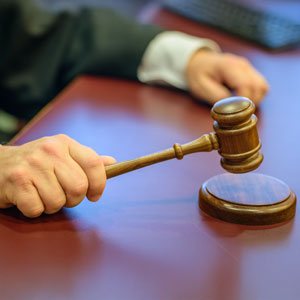
Federal Sentencing Guidelines Federal sentencing guidelines are like the rulebook that judges use to determine fair and consistent sentences for individuals and organizations convicted of serious crimes in the U.S. federal court system. Established by the United States Sentencing Commission, these guidelines ensure that similar offenses receive similar punishments, avoiding the wild swings that can happen without a standardized system. Key Elements Now, let’s quickly delve into fundamental aspects of federal sentencing guidelines. Here, I’ll outline key elements that shape these guidelines and their application in the judicial process. Offense Level Every crime is assigned a base offense level, which is a starting point for sentencing. This level can be adjusted depending on the specifics of the case. For instance, if a crime caused significant harm or if the defendant played a…Read More

Preparing for a Federal Criminal Trial Preparing for a federal criminal trial is a comprehensive and meticulous process involving several key steps that require careful planning, thorough investigation, and a strategic decision-making process to develop the best possible defense. Here's an overview of the general steps a defense attorney would take: Initial Meeting You’ll meet with the attorney and discuss the charges. Their goal should be to understand the situation from your perspective as well as to explain the legal process and the potential outcomes to you. The attorney will begin gathering facts, too. Review Charges Your attorney will continue with an initial investigation. They’ll likely obtain the discovery so as to get the indictment against you. They’ll also gather documents, identify witnesses, and begin collecting relevant evidence. Discovery The government is…Read More
